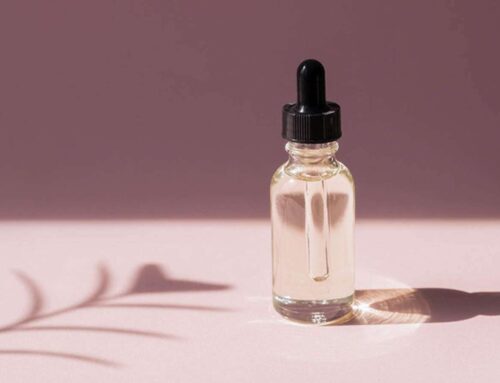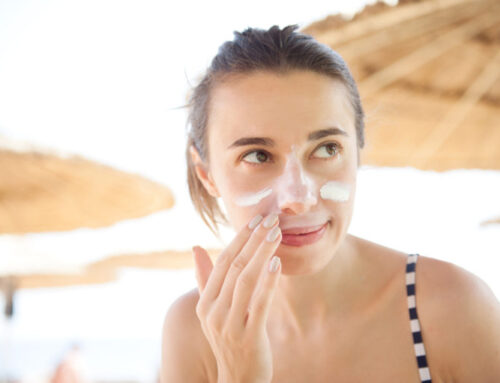
Expectations for Your Skin During Pregnancy: The Good, The Unexpected, and The Temporary
Pregnancy can bring about a range of physical changes, including alterations to the skin, hair, and nails. While many of these changes are normal and necessary to support a healthy pregnancy, they may not always be what you expect. However, the good news is that most of these changes are temporary and tend to resolve within the first six months after delivery.

Understanding the Changes in Your Skin, Hair, and Nails
Pregnancy can bring about various changes to your body, including your skin, hair, and nails. While some women experience the coveted “pregnancy glow” due to an increase in blood volume and sebum production, others may develop vascular changes such as palmar erythema, spider veins, and varicose veins due to higher oestrogen levels.
Stria gravidarum, also known as stretch marks, are a common occurrence caused by the stretching of the skin during pregnancy. Although they tend to fade and shrink after delivery, they may not disappear entirely.
On the bright side, higher oestrogen levels during pregnancy can lead to less hair shedding and thicker, healthier-looking hair, particularly in the third trimester. However, this can be followed by hair loss within the first 6-12 months after delivery, a condition known as telogen effluvium. Some women may also experience increased hair growth or hirsutism on the upper lip, chin, and cheeks, which often subsides after delivery.
Beyond the Bump: Understanding the Nail, Skin, and Sweat Changes
During pregnancy, changes to the body extend beyond the belly. Some women may experience harder, thicker nails, while others may notice softer or more brittle nails. Fortunately, these changes are usually temporary, and the nails should return to normal.
Hyperpigmentation, especially Melasma or the “mask of pregnancy,” affects up to 90% of women and is related to increased hormone levels. Although hyperpigmentation often fades after pregnancy, many treatments are not safe during it.
Increased eccrine gland activity and sweating during it can contribute to discomfort, especially during the third trimester. Additionally, heightened androgens can result in oilier skin, which does not always lead to acne. However, it’s crucial to check the safety of any pre-pregnancy treatments or products before use during pregnancy.

Pregnancy and Your Skin: Understanding Common Skin Concerns
In addition to the normal physiological changes that occur during it, pregnant women may also experience common skin diseases or concerns. Some may develop dry or sensitive skin for the first time, while others may find that pre-existing skin conditions such as eczema, psoriasis, or rosacea may improve or worsen.
It’s important for pregnant women to be aware of the ingredients in their skincare products and make necessary adjustments to avoid using ingredients that are unsafe or have a high potential for irritation. Vitamin A and its derivatives, including retinol, should generally be avoided during it.
Pregnancy is a remarkable journey filled with excitement, anticipation, and a host of physical changes. One area where these changes are particularly evident is your skin. As your body adapts to support the growth of your baby, your skin undergoes various transformations, some of which can be challenging to navigate.
Also read: How Stress Affects the Skin
Common Skin Changes During Pregnancy
- Glowing Complexion: Many expectant mothers experience a radiant, healthy glow during pregnancy. This is often attributed to increased blood flow and hormone levels, resulting in improved skin tone and a natural flush.
- Hyperpigmentation: Hormonal changes can also lead to hyperpigmentation, commonly referred to as the “mask of pregnancy” or melasma. Dark patches may appear on the face, particularly on the forehead, cheeks, and upper lip.
- Stretch Marks: As the belly expands to accommodate your growing baby, the skin may stretch, leading to the development of stretch marks. These can appear on the abdomen, breasts, thighs, and buttocks.
- Acne and Oiliness: Hormonal fluctuations can trigger changes in skin oil production, leading to acne breakouts or increased oiliness for some women.
- Skin Sensitivity: Pregnancy hormones can make the skin more sensitive and prone to irritation. Some women may experience itching, redness, or rashes.

Skin Care Tips During Pregnancy
- Gentle Cleansing: Use a mild, fragrance-free cleanser to cleanse your face and body. Avoid harsh, abrasive products that could irritate sensitive skin.
- Sun Protection: Shield your skin from UV rays by wearing sunscreen with broad-spectrum protection. This is especially crucial for preventing and managing melasma.
- Hydration: Maintain skin hydration by drinking plenty of water and using a fragrance-free moisturizer. Hydrated skin is less prone to dryness and irritation.
- Stretch Mark Prevention: Apply a nourishing, hydrating body lotion or oil to keep your skin supple and reduce the likelihood of stretch marks.
- Acne Management: If acne becomes an issue, consult with a dermatologist or healthcare provider for safe and effective treatment options during pregnancy.
When to Seek Professional Advice
While most pregnancy-related skin changes are normal and manageable, there are situations where you should seek professional advice:
- Severe Acne: If you experience severe acne that doesn’t respond to over-the-counter treatments, consult a dermatologist. Some prescription treatments may be safe during pregnancy.
- Persistent Itching: Intense itching, especially on the palms and soles, can be a sign of a liver condition called cholestasis of pregnancy. Contact your healthcare provider if you experience persistent itching.
- Skin Infections: Any signs of skin infection, such as redness, swelling, pain, or discharge, should be promptly assessed by a healthcare professional.
- New or Changing Moles: If you notice new moles or significant changes in existing moles, consult a dermatologist to rule out any concerns.
Conclusion
Pregnancy is a time of profound change and growth, and your skin reflects this transformation. While you may experience some skin challenges during this journey, remember that most of these changes are temporary and manageable. By following a gentle skincare routine, staying hydrated, and seeking professional advice when needed, you can help ensure that your skin remains healthy and radiant during pregnancy. Enjoy this remarkable time in your life, and embrace the beauty of the journey, inside and out.





